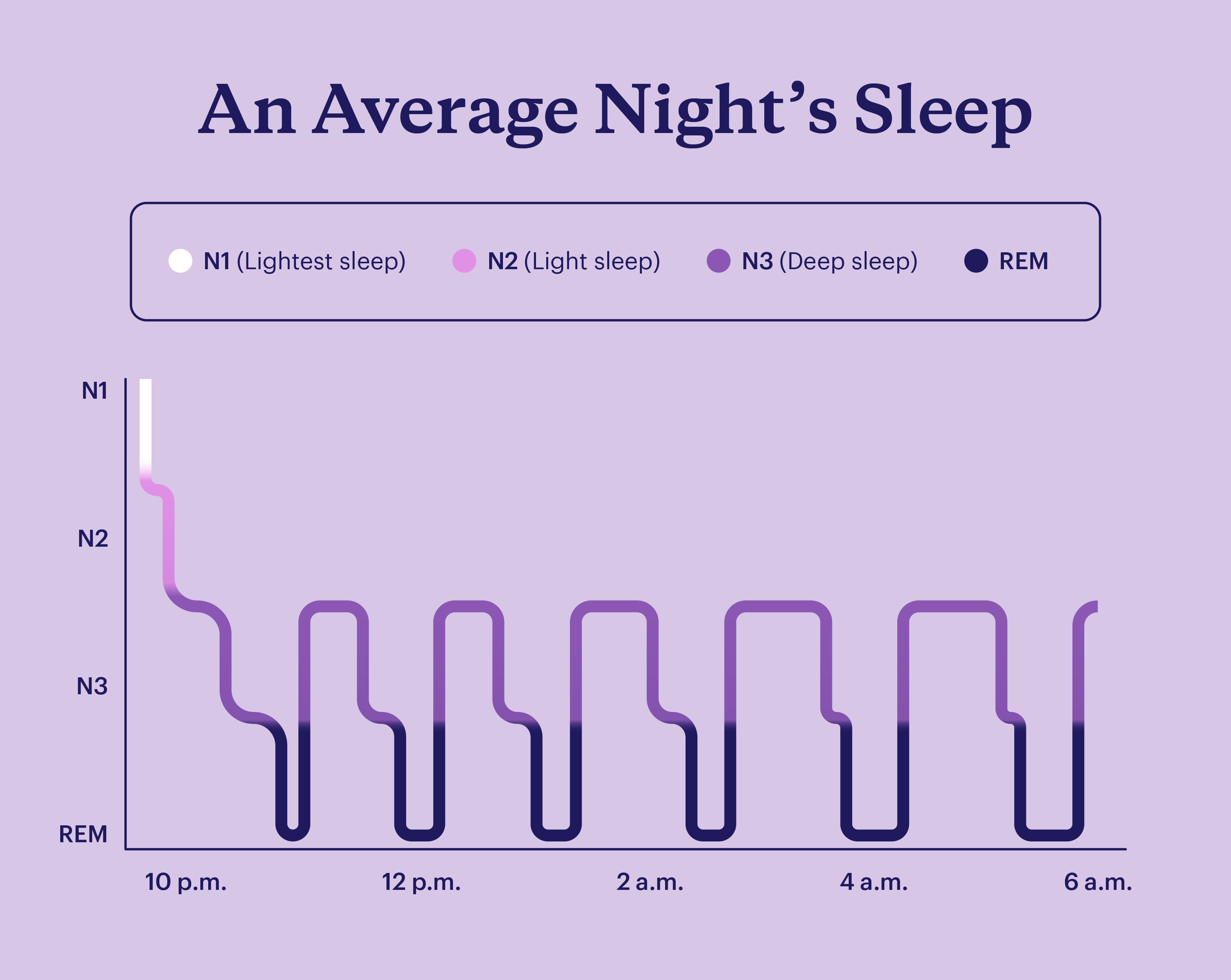Monitoring your sleep pattern may not always top your to-do list, yet getting sufficient sleep is vital for overall well-being.
The amount of rest you obtain influences a wide range of functions, from metabolism and weight to cognitive performance and emotional state.
For many individuals, wake times tend to be relatively steady day-to-day, while bedtimes often vary. Understanding the exact amount of sleep you require to perform optimally can help you decide when to get into bed.

Below, you’ll find guidance on calculating the best bedtime according to your wake time and natural sleep cycles. We also explain how sleep cycles operate and why getting enough sleep — or not — matters for your health.
How much sleep do you need?
Your sleep requirements evolve across your lifespan. Sleep recommendations provide a helpful starting point by offering research-based suggestions for the amounts that support optimal health.
The American Academy of Pediatrics and other organizations outline general sleep ranges for various age brackets:
There can still be variation in sleep needs among people within the same age category.
What matters most is how you feel after different amounts of rest.
Consider these questions when assessing your sleep needs:
- Do I feel refreshed after 7 hours, or do I need 8 or 9 hours?
- Do I experience daytime drowsiness?
- Do I depend on caffeine to get through the day?
- Has my partner noticed me tossing, turning, or having sleep disruptions at night?
Sleep calculator
Recommended bedtimes are calculated using:
- your desired wake-up time
- completion of five or six 90-minute sleep cycles
- an estimated 15 minutes to fall asleep
If you want a quick tool to translate wake time into an ideal bedtime based on those 90-minute cycles, a sleep calculator can be helpful. For a visual of how a typical 90-minute cycle repeats through the night, see the diagram above.
What happens if you don’t get enough sleep?
Insufficient sleep can impair the body’s restorative processes and disrupt multiple systems.
Various health and mental health issues can lead to sleep deprivation, such as:
- depression
- anxiety
- obstructive sleep apnea
- chronic pain
Poor sleep quality can also exacerbate these problems, creating a cycle of ongoing sleeplessness.
A single night of bad sleep usually won’t cause lasting harm. However, studies have associated chronic sleep deprivation with serious outcomes, including a greater risk of long-term disease and reduced lifespan.
Sleep deprivation affects short- and long-term physical, emotional, and cognitive health.
Physical impacts
A single night of insufficient sleep can produce immediate physical signs such as:
- fatigue
- headaches
- dark circles beneath the eyes
- dull or pale skin
Prolonged sleep loss can have more profound health consequences, including:
- a weakened immune system, making infections harder to fight
- elevated cortisol, which can contribute to high blood pressure and other health issues
- increased hunger and cravings for sugary or starchy foods
- weight changes
- skin alterations like fine lines, wrinkles, and reduced elasticity
- chronic inflammation
Emotional and mental health impacts
Insufficient sleep can negatively influence your mood.
Not getting enough rest may lead to:
- irritability
- sudden mood swings
- trouble regulating emotions
- difficulty handling stress
- problems relating to others
Research also indicates that sleep deprivation can aggravate mental health symptoms, including depression, anxiety, paranoia, and even hallucinations.
Sleep loss can contribute to symptoms of several psychiatric conditions, such as:
- depression
- anxiety disorders
- attention deficit hyperactivity disorder (ADHD)
Cognitive impacts
When you lack adequate sleep, cognitive performance suffers — concentration and memory can decline.
Evidence shows that sleep deprivation impairs functions of the brain’s frontal lobe, including:
- attention
- alertness
- decision-making
- judgment
- memory
- reaction time
These deficits can contribute to:
- poorer performance at work or school
- impaired judgment and impulse control
- increased risk of accidents
Frequently asked questions
Does your need for sleep change with age?
Your sleep requirements shift as you age and generally stabilize around age 20.
As people grow older, total sleep needs tend to decline. Environmental, behavioral, and medical factors can all influence how much rest you require, and those factors may change over time.
Why am I still tired after sleeping for 8 hours?
There are several reasons you might feel unrefreshed after 8 hours in bed. A logical first step is to review your sleep habits and hygiene.
If you awaken tired despite eight hours of sleep, you may need to modify bedtime routines or address an underlying issue. Factors that can reduce sleep quality include:
- your sleeping environment
- movement or noise from a partner or pet
- sleep disorders such as insomnia or sleep apnea
- chronic pain
- an underlying medical or psychiatric condition
Is it healthy to nap during the day?
Napping for more than 30 minutes during the day can interfere with nighttime sleep. In a study, individuals who napped longer than 30 minutes had an elevated risk of cardiovascular disease compared with those who napped for under 30 minutes.
The bottom line
If you target 7 to 9 hours of sleep nightly, a sleep calculator like the one described above can help you choose a bedtime based on when you need to wake.
Waking at the end of a sleep cycle — when you’re most likely to feel refreshed — is ideal.
Good-quality sleep supports overall health, so if you struggle to fall or stay asleep, consider reaching out to a healthcare provider. They can help identify underlying causes of sleep problems and recommend solutions.
For additional sleep resources, visit our sleep shop.

























Leave a Reply
You must be logged in to post a comment.